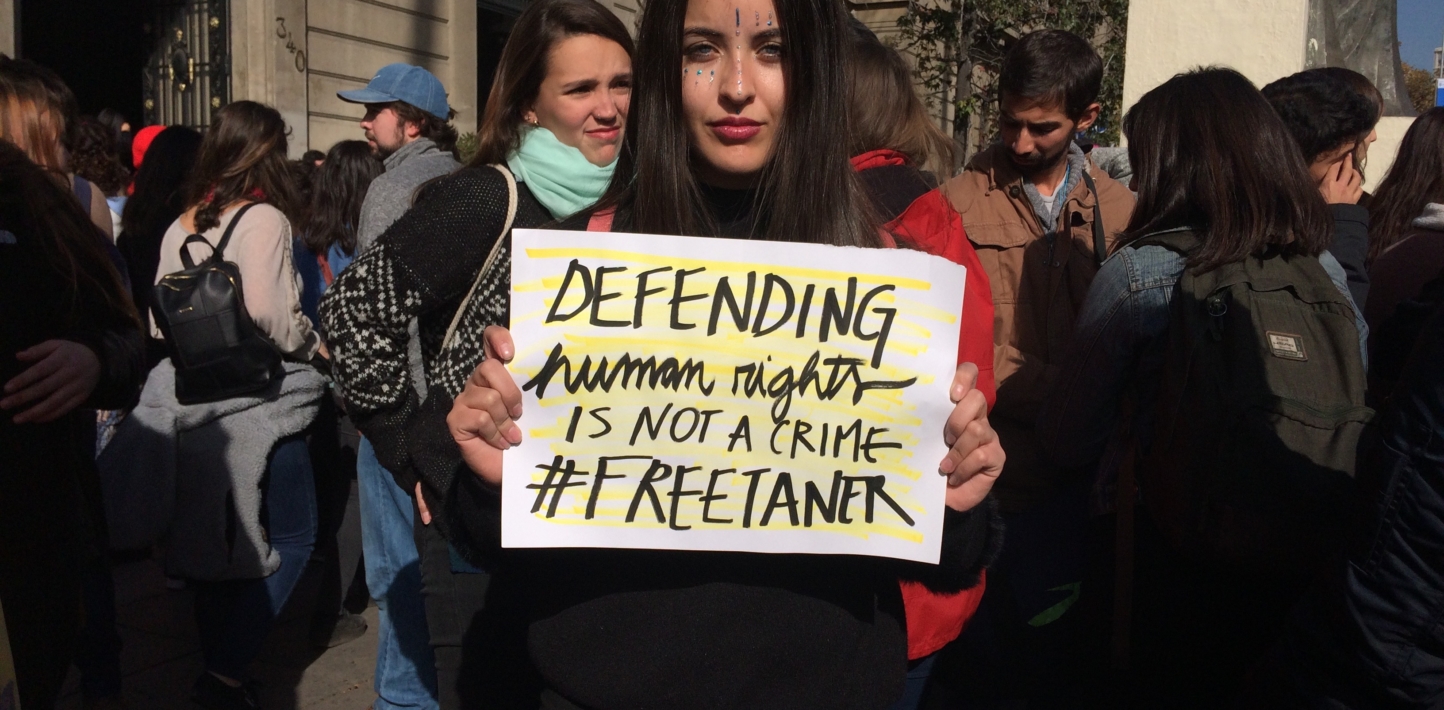Inspired by activists from across the globe learning their rights and spreading a global culture of human rights, the Transformative Power of Human Rights Education series is a window into the stories of the human rights defenders that have taken part in Amnesty’s human rights education initiatives. The series sheds light on the transformative power of HRE and the actions these activists go on to take.
Karin Watson is a Human Rights Education activist in Chile, and a member of the Global Youth Collective

How did you become an activist?
One time I heard someone say, “Activism is the rent I pay for living in the world”, and it’s the kind of thing you never forget. I feel like I come from a privileged background in a struggling country, and I believe the right thing is to use that privilege to help those in worse situations, to change things, to raise our voice.
Human Rights Education was a turning point in my life. I went to an Amnesty workshop on sexual and reproductive rights when I was 17. It was an experience I’ll never forget: that kind of education and dynamic is something I had never experienced before. It was particularly the safe space that they created that really impacted me, so many different people from such diverse backgrounds, being able to share on a very intimate level. I had never had the opportunity to speak with such freedom about such topics. I felt empowered, understood and less alone.
Tell us about an initiative you’ve taken part in through HRE, and the change you’ve seen it make.
One of my most ground-breaking moments was being part of the “Chile doesn’t protect women” campaign, which started in 2015 and focuses on changing the abortion law in my country. It’s been an ongoing fight to change our very strict laws about abortion, which back then forbid it under all circumstances.
We worked very hard with different initiatives, to decriminalize abortion in at least three basic grounds. It was a long process, with a big effort from different associations and organisations, but finally last year we got the law to change. It was a small step, but a giant achievement. This change means women and girls don’t have to die because of clandestine abortions, and they won’t be punished for taking decisions over their own bodies.
Personally, it was a very emotional moment, seeing the work of years and years turn into something that affects people’s lives so deeply. It’s the kind of moment that keeps you going. Seeing the impact it had on women and girls across the country was amazing!
Education is the base of every social change. Every single person who feels motivated is a little step forward.
Karin Watson
What is the role of Human Rights Education in this?
Human Rights Education gives me the opportunity to speak out for what I believe and to motivate others to do it. In our campaign, we weren’t only fighting the law, we wanted to educate people about tolerance and reduce the stigma of abortion.
I have the opportunity to go to schools and tell kids who are struggling like I used to that their opinions matter and are valuable, that they have the right to speak out, to fight for what they think is right, even when older people discourage them. After the workshops, I can see that they feel empowered, heard, and motivated to create change in their own communities.
Working in sexual and reproductive rights, I feel like we help fix the holes in our educational system and we create safe spaces for young people to learn and discuss. We try to normalize topics and empower people to claim their rights.
Education is the base of every social change. Every single person who feels motivated is a little step forward.
What change do you want to see in your community, in the world?
I want to see people, women and youth enjoying their rights. I want people to feel empowered and to know their rights. I want a society that is more open and conscious. I would like to live in a society that remembers its past and a country that welcomes migrants and refugees and is concerned about women’s rights. And, one step at a time, I’m trying to help build that society!
To stay up to date on the latest news and information on Human Rights Education across the globe, subscribe to our blog, and follow us on Facebook.


